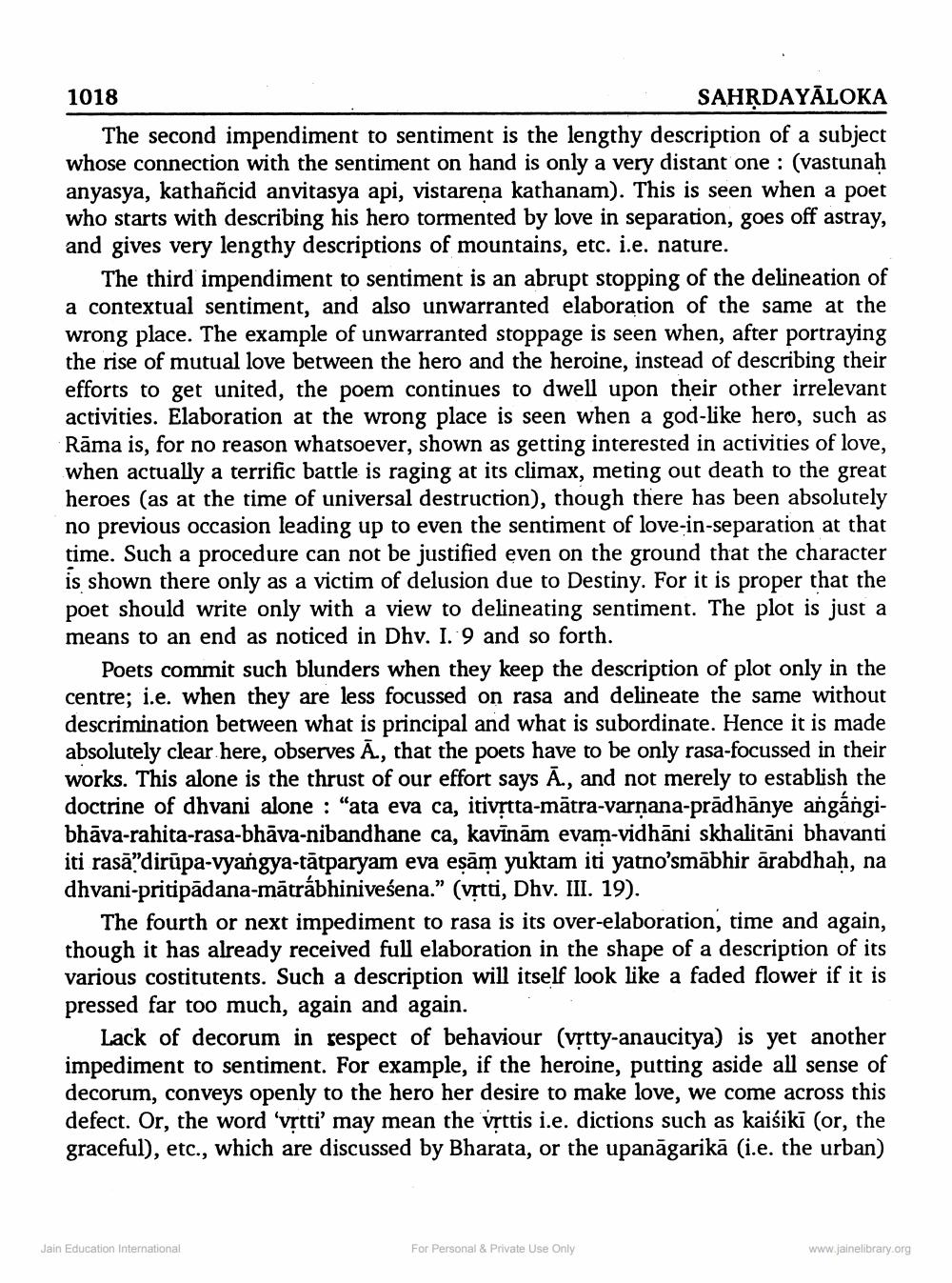________________
1018
SAHRDAYĀLOKA The second impendiment to sentiment is the lengthy description of a subject whose connection with the sentiment on hand is only a very distant one : (vastunah anyasya, kathañcid anvitasya api, vistarena kathanam). This is seen when a poet who starts with describing his hero tormented by love in separation, goes off astray, and gives very lengthy descriptions of mountains, etc. i.e. nature.
The third impendiment to sentiment is an abrupt stopping of the delineation of a contextual sentiment, and also unwarranted elaboration of the same at the wrong place. The example of unwarranted stoppage is seen when, after portraying the rise of mutual love between the hero and the heroine, instead of describing their efforts to get united, the poem continues to dwell upon their other irrelevant activities. Elaboration at the wrong place is seen when a god-like hero, such as Rāma is, for no reason whatsoever, shown as getting interested in activities of love, when actually a terrific battle is raging at its climax, meting out death to the great heroes (as at the time of universal destruction), though there has been absolutely no previous occasion leading up to even the sentiment of love-in-separation at that time. Such a procedure can not be justified even on the ground that the character is shown there only as a victim of delusion due to Destiny. For it is proper that the poet should write only with a view to delineating sentiment. The plot is just a means to an end as noticed in Dhv. I. 9 and so forth.
Poets commit such blunders when they keep the description of plot only in the centre; i.e. when they are less focussed on rasa and delineate the same without descrimination between what is principal and what is subordinate. Hence it is made absolutely clear here, observes Ā., that the poets have to be only rasa-focussed in their works. This alone is the thrust of our effort says A., and not merely to establish the doctrine of dhvani alone : "ata eva ca, itivrtta-matra-varnana-prādhānye angángibhāva-rahita-rasa-bhāva-nibandhane ca, kavīnām evam-vidhāni skhalitāni bhavanti iti rasā”dirūpa-vyangya-tātparyam eva esām yuktam iti yatno'smābhir ārabdhah, na dhvani-pritipādana-mātrábhiniveśena.” (vrtti, Dhv. III. 19).
The fourth or next impediment to rasa is its over-elaboration, time and again, though it has already received full elaboration in the shape of a description of its various costitutents. Such a description will itself look like a faded flower if it is pressed far too much, again and again.
Lack of decorum in respect of behaviour (vrtty-anaucitya) is yet another impediment to sentiment. For example, if the heroine, putting aside all sense of decorum, conveys openly to the hero her desire to make love, we come across this defect. Or, the word 'vṛtti' may mean the vșttis i.e. dictions such as kaiśiki (or, the
scussed by Bharata, or the upanāgarikā (i.e. the urban)
Jain Education International
For Personal & Private Use Only
www.jainelibrary.org




